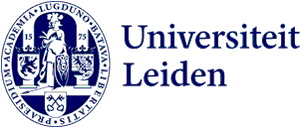
Leadership symposium: you can learn something from everyone
'You don't have to kick the door open', Judi Mesman tells participants of the Leadership for a better tomorrow symposium. During this inspiring afternoon, students, teachers and partners will discuss leadership with Judi and each other. 'To really understand leadership, you have to look at patterns.'
On April 18th, the Leadership for a better tomorrow symposium, organised by the Leiden Leadership Centre (LLC) and the Leiden Leadership Programme (LLP), took place. The collaboration aimed to exchange experiences and research findings on leadership. A unique opportunity, says Patrick Daamen, student assistant at the LLP and co-organiser of the event. 'That a research and teaching institute organise this together is very special. It opens doors for future collaborations, which is useful for both our students and our partners.'

Naturally
During the walk-in, the gallery of the Leiden Academy Building slowly fills up. One of the attendees is LLP student Gaurav Sharma, who is particularly curious to hear Judi Mesman's keynote. As a professor at Leiden University, she researches social justice, focusing on among other things diversity and inclusion in organisations.
That is exactly what Gaurav is keen to learn more about. 'Anyone can become a manager, but for leadership you need different skills.' For that, he says, it is important to be able to work together in a multicultural environment. 'For me, diversity, colour and background are very important. I am not from Europe myself, so I am especially curious to see how Judi's research relates to social changes in Europe over the last twenty years.'
'It is important for leaders to take your employees' experiences, suggestions and feedback seriously,' Judi says during her presentation. For the report Leiderschap in kleur, she interviewed 40 leaders of colour in the (semi-)public sector. Their experiences are often similar, providing an opportunity to discover similarities. 'To really understand leadership, you have to look at patterns.'

Something that Judi noticed was that many of the leaders of colour surveyed took on the D&I portfolio, even if it was not necessarily part of their position. According to Judi, this was mainly to ensure that future generations of leaders would not have the same negative experiences. Respondents also felt that they saw different things in this area than their white colleagues.
Useful for partners and students
'It made me quiet,' says Pim van Vliet after the presentation. As municipal secretary of the municipality of Leiden, she recognises Judi's story. 'What I particularly recognise is that we have to look at the system. For me, communication is essential, but there remains a difference between being able to listen to an experience and feeling it. Diversity programmes are important, but ultimately it's about your own leadership.'
After the opening of the discussion by Pim, the attendees gather for a pub quiz and drinks. In mixed teams, the students, teachers and partners answer questions about leadership together. 'This is fun and especially very different from my normal work,' says Raphael Boon. As project leader Diversity & Inclusion at the municipality of Leiden, he supervised a group of LLP students in 2022. 'As a partner, I have already learned a lot from other attendees this afternoon. About leadership in general for example, but also about rejuvenating organisations.'

Master student Mona Jormand also thought it was a successful afternoon. She was particularly interested in what the relationship is between D&I and leadership. For her, it is of great value to talk about this with fellow students and partners. She also found Judi's lecture inspiring. 'I learned that if we want real change, we have to tackle the structures. If we can take small steps now, I am confident that things will work out.'
Text: Robin Buijs
Photography: Buro JP
